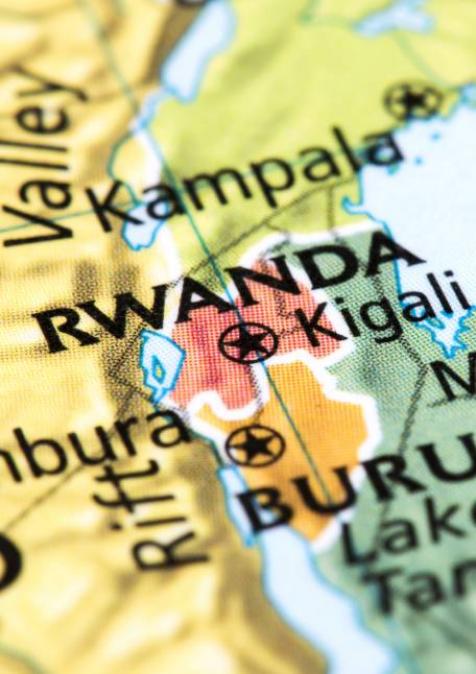Publications /
Opinion
The author is an alumnus of the 2016 Atlantic Dialogues Emerging Leaders program
People centered development is the crux of the African Union’s (AU) new Agenda 2063 initiative. Its overall goal is a Pan African transformation and development of its member countries, while reframing the continent’s presence on the global stage. Fortunately, women’s equality is one of its aims, addressing discrimination, gender-based violence, and empowerment, to name a few. As developed nations like the United States and France still struggle to elect a female head of state, ten African countries have already done so, demonstrating that women’s leadership and inclusion has a historical precedent for many Africans. In many ways, the Agenda also mirrors the United Nation’s (UN) Sustainable Development Goals, demonstrating African leaders’ determination for progress in the 21st century and beyond. The question remains, what is the impact of furthering women’s representation and leadership in the AU on actual lived experiences of African women?
An ambitious and idealistic agenda for women
With a youthful population of over one billion, at quick glance, the AU’s agenda for women seems idealistic and ambitious. In just ten years, between 2013 and 2023, the AU posits a number of changes, including removing all obstacles to property ownership and business and creating gender parity throughout the organization and Regional Economic Communities. With 54 member states, all at different stages of social development, especially concerning gender equity, it is difficult to envision complete parity and an end to all harmful social and customary practices by 2023. Perhaps the most promising initiative lies with the AU’s hopes of gender mainstreaming and creating an inclusive work environment for women at all levels of power.
Since the development of Agenda 2063, the AU has led several normative initiatives, aiming to lead its member states to more gender sensitized reforms both at national and regional level. For example, 2010-2020, the body declared it the “African Women’s Decade,” and in 2016 declared the “Year of Human Rights with particular focus on the rights of Women.” In line with the adoption of UN Security Council Resolution 1325, the AU has incorporated a Women, Peace, and Security Agenda within its African Peace and Security Architecture (APSA), leading to the appointment of a Special Envoy for Women, Peace, and Security in 2014. In addition to a Special Envoy, there is a Special Rapporteur on the Rights of Women, and the APSA has implemented a Gender, Peace, and Security Programme. The first woman Chairperson of the AU Commission, Dr. Nkosazana Dlamini-Zuma elected in 2012, from 2012-2016, ensured that of the eight AU commissioners, four were women. Newly appointed Chair (2017) Moussa Faki-Mahammat continued this approach, appointing an equal number of men and women in his cabinet.
From representation to policy change?
I would argue that representation and visibility changes perspectives and infuses a culture of inclusivity at the highest levels. Giving women opportunities to lead in an intergovernmental organization like the AU, keeps the conversations somewhat diverse and does throw a wrench in established patriarchal norms and dialogues. It is crucial to ensure diversity of thought amongst decision makers to consistently challenge oppressive and marginalizing discourses related to gender.
At the same time, injecting female bodies does not always translate to gender sensitive approaches to security, economic development, or even global health initiatives. There is a marked difference between women participating in foreign policy versus gender mainstreaming in sustainable development agendas. Gender mainstreaming incorporates perceived implications for women in all development programming to ultimately achieve gender equality. Both proposals, I argue, should be central to the AU’s Agenda 2063. Member countries and Commission leadership alike, must prioritize hiring women in leadership and decision-making roles, while also implementing frameworks and reforms that address women’s political, social, and economic underdevelopment at local, national, and continental levels.
African women are not a monolithic group; they are varied by religion, spirituality, family structure, class, race, language, tribe, etc. Not only must the AU push for diversity among women, there should be conscious efforts to incorporate informal civil society groups in decision-making, as many rural communities do not consistently have access to powerful urban capitals or services (Havik, P. J. (2015). Female Entrepreneurship in West Africa: Trends and Trajectories. Early Modern Women, 10(1), 164-177. doi:10.1353/emw.2015.0017). With the AU leading normative initiatives promoting women’s rights, member states and commissioners can work on accessing rural women who have already built their own resilient systems for economic and political determination. The AU, to design gender and women-centric proposals that work, must strengthen and streamline its dialogue with women in non-traditional governance roles and remote communities.
The International community should applaud the AU as it seeks to replicate global gender norms and justice in its own organ and set a standard for its members. It should be recognized, yet scholars and other actors must continue the pressure on member states to adopt inclusive frameworks that lead to greater freedoms and protections for women. Representation is a strong key for gender mainstreaming, but not the only determinant. For representation to be truly effective, it must be at all levels of governance and be accompanied by actionable and implementable reforms, which expand African women’s rights. Achieving sustainable development in Agenda 2063 is possible, but it hinges on women’s political, economic, and social empowerment; connecting the most vulnerable to adequate services and including them in the governance and leadership process.





